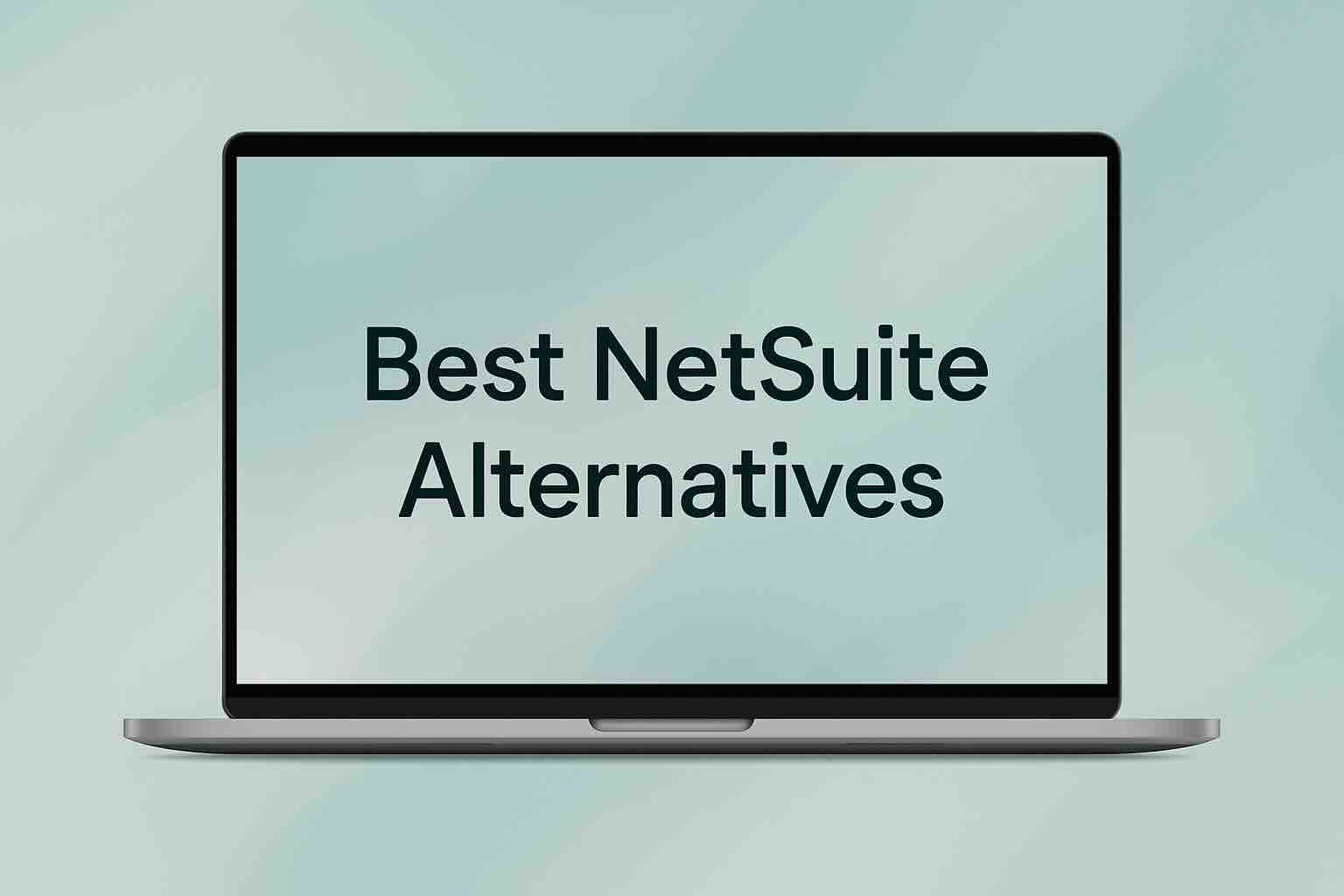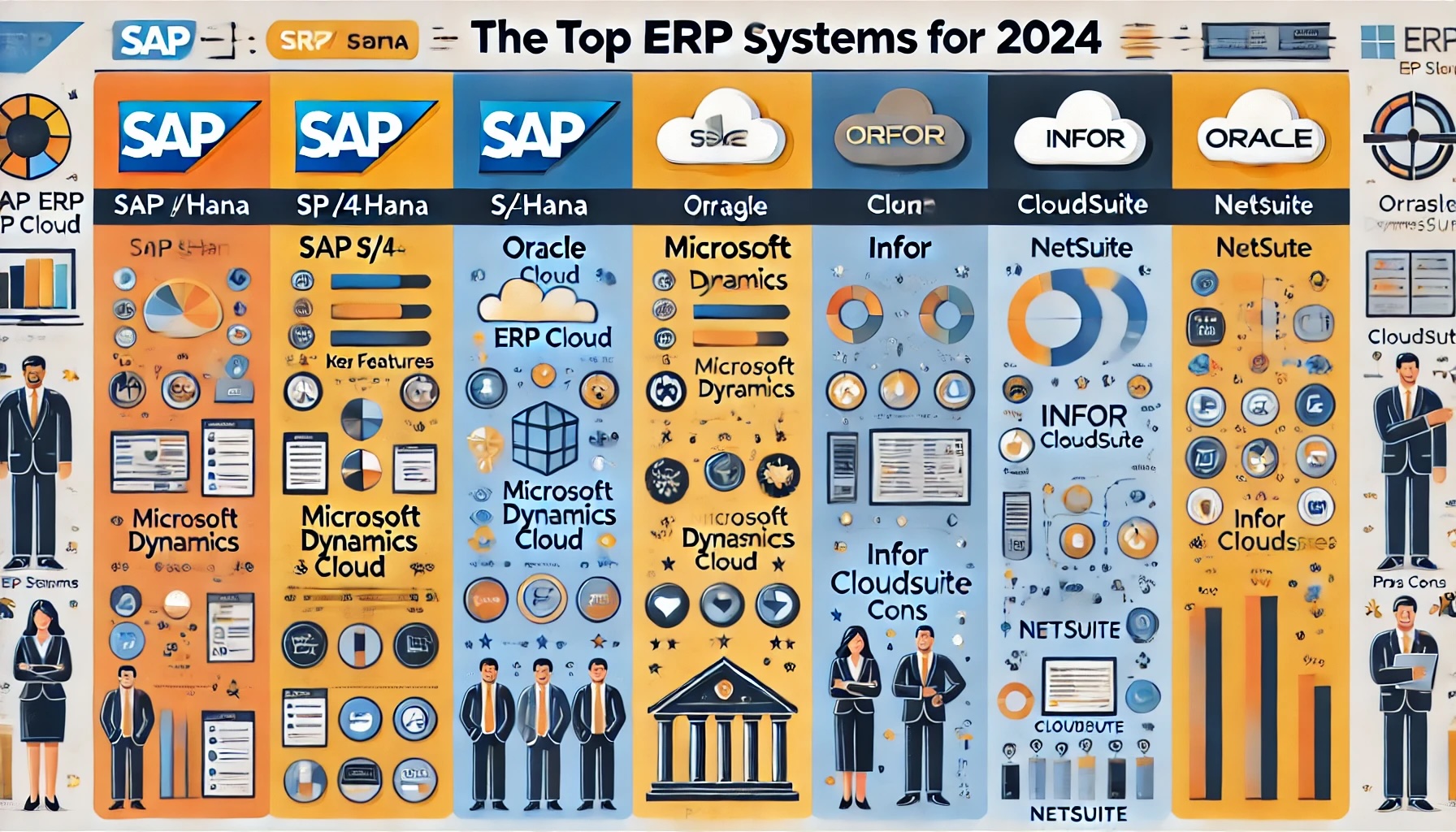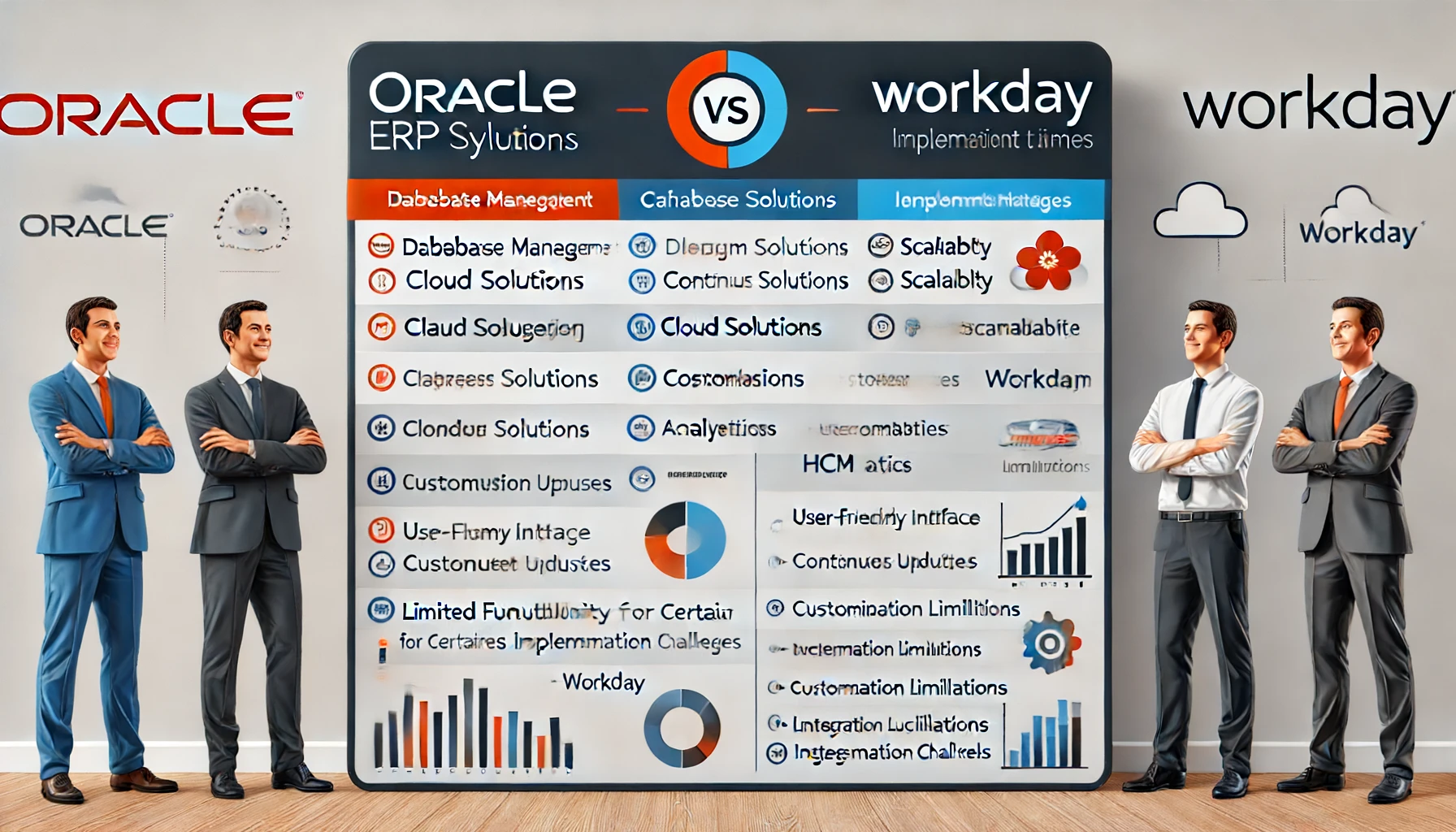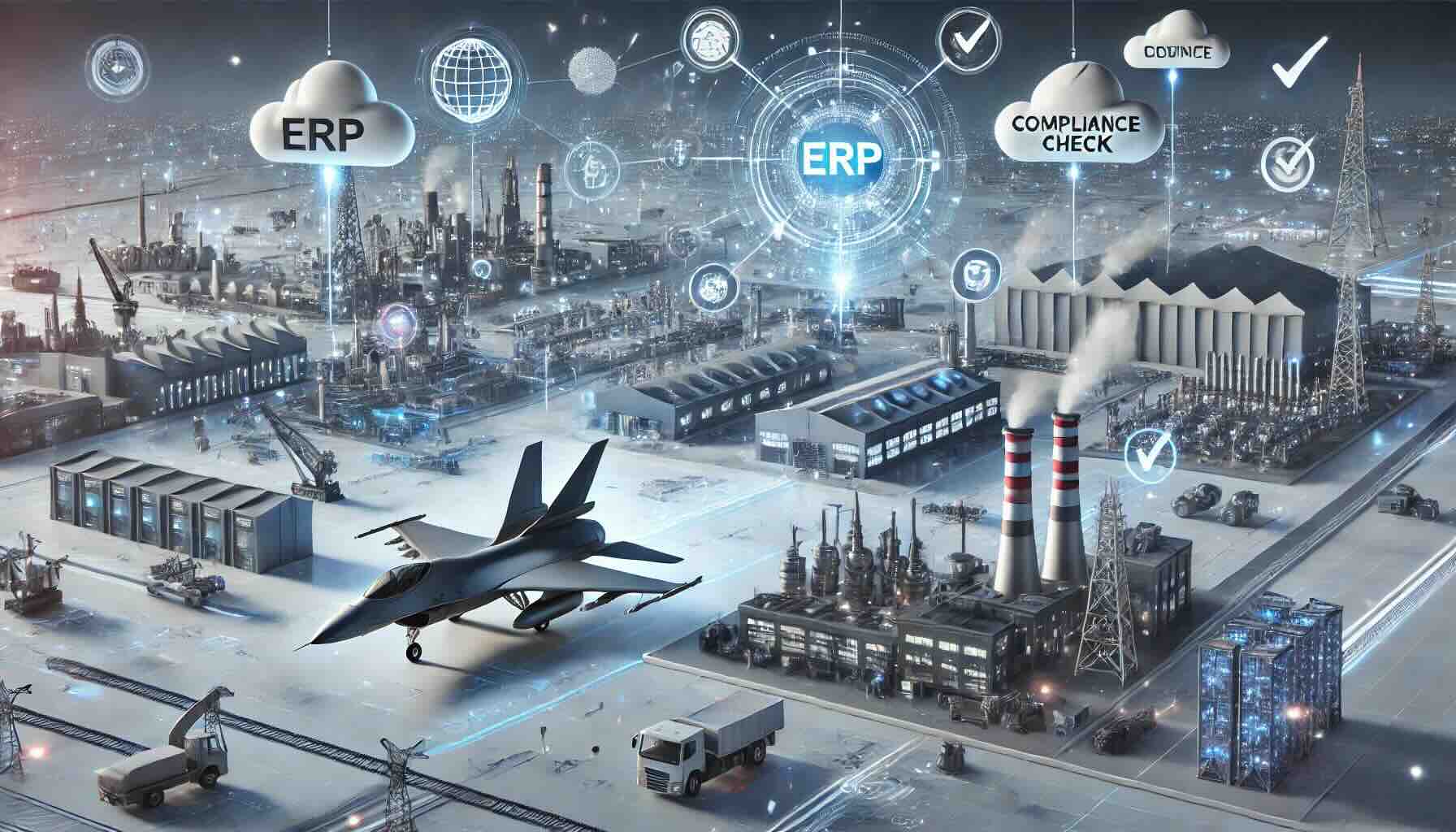SAP vs. Workday, which is best?
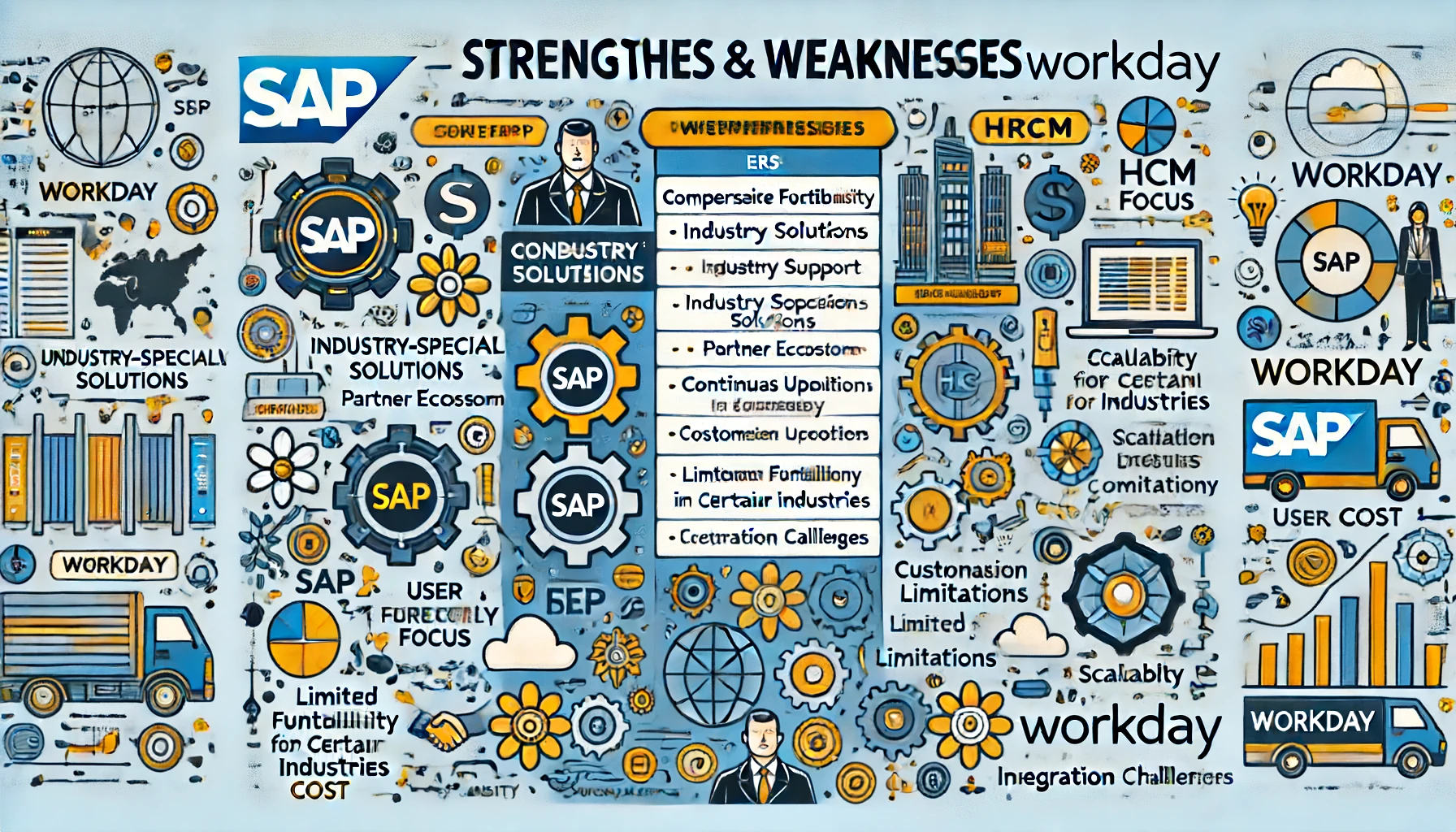
When it comes to selecting the ideal enterprise resource planning (ERP) system, the “SAP vs. Workday” debate is one that many businesses encounter. Both SAP and Workday offer powerful ERP solutions tailored to various business needs. This blog will provide a comparative analysis of SAP and Workday, highlighting their strengths and weaknesses to help you make an informed decision.
SAP: Strengths and Weaknesses
Strengths of SAP
- Comprehensive ERP Functionality: SAP is well-known for its extensive ERP functionality. In the “SAP vs. Workday” discussion, SAP stands out with its broad range of modules covering all aspects of business operations, from finance and HR to supply chain and manufacturing.
- Industry-Specific Solutions: SAP offers tailored solutions for various industries such as manufacturing, retail, healthcare, and more. These industry-specific solutions ensure that businesses get tools and functionalities most relevant to their sector, enhancing operational efficiency.
- Global Reach and Support: SAP’s strong global presence is a significant advantage. With a robust support network and local expertise in various regions, SAP can effectively support multinational corporations, making it a key player in the “SAP vs. Workday” comparison.
- Strong Partner Ecosystem: SAP boasts a vast network of partners and third-party vendors, providing a wide range of add-ons and extensions. This ecosystem allows businesses to enhance their ERP system with additional functionalities and integrations.
Weaknesses of SAP
- Complexity and Rigidity: SAP’s ERP solutions can be complex and rigid, making customization challenging. This rigidity can limit flexibility and adaptability for some organizations, which is a crucial factor in the “SAP vs. Workday” analysis.
- Costly Implementation and Maintenance: Implementing and maintaining SAP’s ERP systems can be expensive. This includes not only the initial setup and licensing fees but also ongoing maintenance and support costs. For SMEs, these expenses can be prohibitive.
- User Experience: Despite improvements, SAP’s user interface can still be less intuitive compared to newer ERP solutions. Users often find SAP’s interface complex, which can affect user adoption and satisfaction.
Click this link to find out more about SAP.
Workday: Strengths and Weaknesses
Strengths of Workday
- User-Friendly Interface: In the “SAP vs. Workday” debate, Workday is often praised for its intuitive and user-friendly interface. This ease of use can significantly enhance user adoption and satisfaction, making it easier for employees to navigate and utilize the system effectively.
- Human Capital Management Focus: Workday excels in Human Capital Management (HCM). Its comprehensive HCM suite includes talent management, payroll, and workforce planning, making it a preferred choice for organizations with a strong focus on human resources.
- Continuous Updates and Innovation: Workday’s cloud-based ERP system allows for continuous updates and innovations. This ensures that businesses are always using the latest features and technologies without the need for disruptive upgrades, positioning Workday as a forward-thinking solution in the “SAP vs. Workday” comparison.
- Scalability: Workday is highly scalable, making it suitable for both small businesses and large enterprises. Its flexible deployment options allow companies to grow and expand without significant disruptions to their ERP system.
Weaknesses of Workday
- Limited Functionality for Certain Industries: While Workday is strong in HCM, it may lack comprehensive functionality for certain industries, such as manufacturing and supply chain management. This can be a limitation for businesses in these sectors when considering the “SAP vs. Workday” comparison.
- Customization Limitations: Workday offers less customization compared to SAP. This rigidity can be a drawback for organizations with unique operational needs that require extensive tailoring of their ERP system.
- Cost: Similar to SAP, Workday can also be expensive, particularly for large enterprises requiring extensive functionality. The cost of implementation and ongoing subscription fees can be a significant consideration for businesses.
- Integration Challenges: Workday’s integration capabilities, while improving, may not be as robust as SAP’s. This can pose challenges for organizations with complex IT ecosystems that require seamless integration across various applications.
Click this link to find out more about Workday.
Conclusion: SAP vs. Workday?
In the “SAP vs. Workday” debate, the best choice depends on your organization’s specific needs and priorities. SAP excels in comprehensive ERP functionality, industry-specific solutions, and global support, making it ideal for large enterprises with diverse and international operations. However, its complexity and cost can be potential drawbacks.
On the other hand, Workday offers a user-friendly interface, strong HCM focus, continuous updates, and scalability, making it a solid choice for organizations prioritizing human resources and user experience. However, its limited functionality for certain industries and customization limitations can be challenging for some businesses.
In conclusion, both SAP and Workday have unique strengths and weaknesses. A thorough evaluation of your business needs, budget, and long-term goals is essential in making the right choice. Whether you opt for SAP or Workday, investing in a robust ERP system is a strategic move that can drive your business toward greater efficiency and success.
To compare SAP and Workday with 100s of other ERP solutions, you can use our new AI-powered Compare ERP tool. It’s free to use and you get a guaranteed discount on your first year’s licence fees with a referral from Compare ERP.





